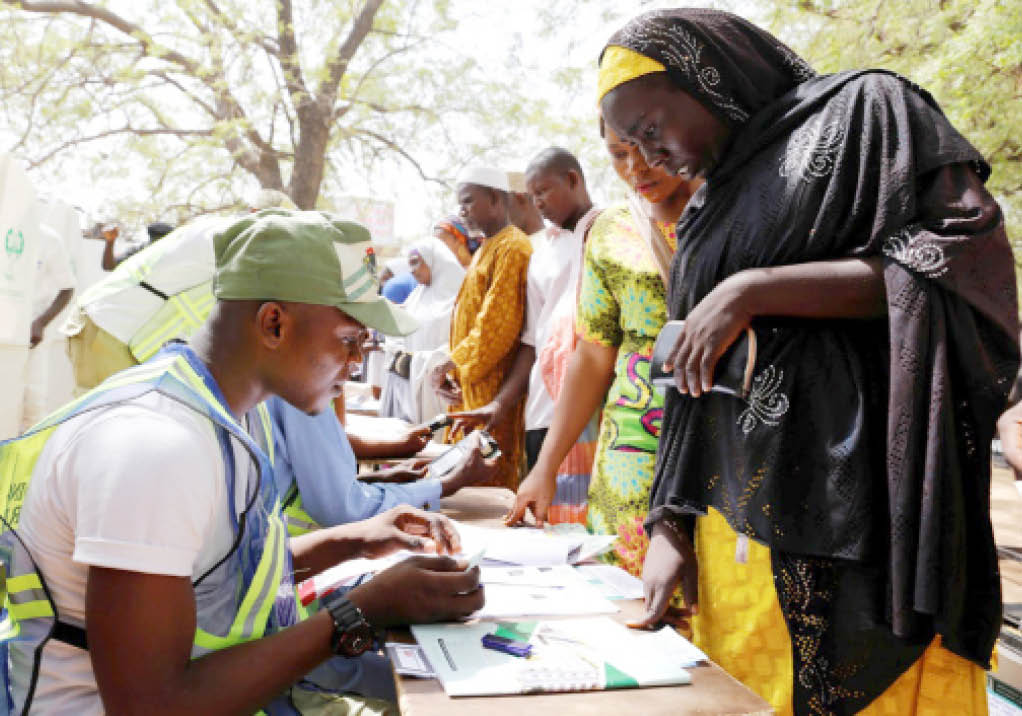Since the advent of the Fourth Republic, Nigeria has witnessed five election cycles, to wit: 1999; 2003; 2007; 2011 and 2019. By the same token, we have seen a progressive improvement in the conduct of elections – thanks to the robust introduction of technology/innovations and vast improvements in the legal framework.
One major tendency has defined the last five general elections: Two parties, in each election cycle, have dominated the political sphere. Even though these dominant parties have not been ideologically driven, and one can be mistaken for the other, their emergence has given considerable joy, fillip and justification to the advocates of a two-party system.
The 2023 general elections, however, offer a contrary possibility and ball game: Bookmakers and pundits are agreed that the elections will stray from the tendency that hallmarked previous elections.
They agreed that, unlike the last five general elections, at least four formidable candidates/parties have already emerged. And given their formidability, the votes of Nigerians are likely to be divided amongst the contestants such that a winner of the presidential election may not be returned by the chief electoral commissioner or INEC chairman at the end of the first ballot. A similar scenario may replicate itself in a few states where strong candidates are vying for governorship elections.
- Real Madrid beat Al-Hilal to win first Club World Cup in five years
- PDP’ll win coming presidential election, Atiku boasts
With vast improvements in technology, savvy and hands-on electoral administration, eagle-eyed observation and professional reportage which have in turn added transparency to the electoral process, some of the elections – presidential and governorship – are unlikely to meet the constitutional thresholds or benchmarks at first round. They are thus going to be “inconclusive” as is trite knowledge in electoral parlance.
But their being inconclusive does not detract from their transparency or credibility. Far from it. What it implies is that our elections are better, more transparent and more competitive. Inconclusive elections in this context are therefore not bad elections or purloined elections as they are pejoratively perceived by Nigerians.
But what happens when a presidential election is inconclusive or a winner is not returned on the first ballot? It simply means the Commission will find recourse in a run-off or second round of the election. This then leads us to the question: What thresholds does a candidate need to meet to be returned as the winner of a presidential election? What are the political and legal underpinnings of a presidential election?
Nigeria runs an American-style presidential system. Like the United States, winning the popular or majority vote/largest votes cast does not translate into being qualified to be returned as the winner. In America, one must win the Electoral College votes to qualify as we witnessed in the 2016 contest between Hillary Clinton and Donald Trump. Whereas Clinton won the popular vote, Trump prevailed by winning the Electoral College votes.
In Nigeria, we run the Majoritarian or First Past the Post (FPTP) dispensation. Under this system, the popular vote is key. Each vote is crucial since it emphasizes securing the highest number of votes cast in the election. The winner is also expected, in addition to securing the highest votes cast in the election, to garner at least 25 percent of the votes in at least two-thirds of all the states of the federation and the Federal Capital Territory (FCT). Section 134(2) of the Constitution of the Federal Republic of Nigeria,1999 (as amended) captures the requirements succinctly: “A candidate for an election to the Office of President shall be deemed to have been duly elected, where, there being more than two candidates for the election-
- a) he has the highest number of votes cast at the election; and
- b) he has not less than one-quarter of the votes cast at the election in each of at least two-thirds of all the states in the federation and the Federal Capital Territory, Abuja”.
If none of the contestants meets these thresholds in an election, where there are more than two candidates, as is being speculated and referenced in this treatise, then a run-off or second election shall be conducted by the Independent National Electoral Commission (INEC). Section 134(3) is lucid and unmistakable on this. It states: “In default of a candidate duly elected in accordance with sub-section (2) of this section there shall be a second election in accordance with sub-section (4) of this section at which the only candidate shall be –
- a) the candidate who scored the highest number of votes at any election held in accordance with the said subsection (2) of this section; and
- b) one among the remaining candidates who have a majority of votes in the highest number of states so however that where there is more than one candidate with the majority of votes in the highest number of states, the candidate among them with the highest total of votes cast at the election shall be the second candidate for the election.”
These explanations are germane and cogent as the general elections await us in less than two months. They should also dominate the upper reaches of our political discourse for these compelling reasons:1) The experts have strongly suggested that a clear winner may not emerge at the first ballot. Arising from this, the media have made elaborate projections that reinforce this suggestion. Even though these are a priori and unscientific projections, based on a dynamic and quicksand political turf, it is pertinent that we are psychologically prepared for this eventuality. 2) It is imperative to foster a clear understanding of the procedures, laws and requirements that inform presidential and governorship elections. This is key given the tendency of our elections to inflame passions.
An elucidation of the requirements will certainly engender an understanding of the process thereby averting the kind of post-election violence that visited the outcome of the 2011 general elections. Even though the elections in 2011 were adjudged by stakeholders, across the board, as credible and transparent, their outcomes, nonetheless, ignited violence in which lives were needlessly lost and properties destroyed.
As per the conduct of a probable run-off to be conducted after 21 days or three weeks in the aftermath of the presidential election, INEC had always anticipated this possibility. It has been proactive since the conduct of the 1999 general elections. Ballots for possible run-offs are usually factored and printed at the same time as the ones to be used in the main or first set of elections. This is to avert a nightmare scenario given the enormous logistics involved in printing and securing the appropriate budgetary appropriation at the eleventh hour. Nigerians should thus rest assured that in the event of a run-off, the Commission is in a good place to deliver.
Nick Dazang is a former Director at the Independent National Electoral Commission (INEC).

 Join Daily Trust WhatsApp Community For Quick Access To News and Happenings Around You.
Join Daily Trust WhatsApp Community For Quick Access To News and Happenings Around You.



